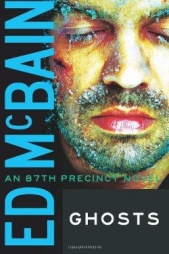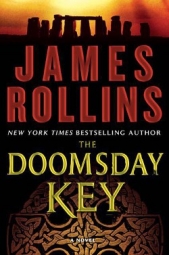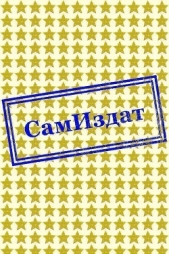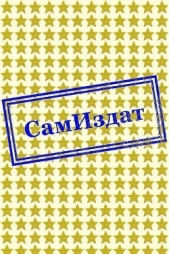Ghosts

Ghosts читать книгу онлайн
It’s Christmastime and Detective Carella gets assigned three murders — including a bestselling author of ghost stories — and is soon after ghosts, mediums, and a crazed killer.
Внимание! Книга может содержать контент только для совершеннолетних. Для несовершеннолетних чтение данного контента СТРОГО ЗАПРЕЩЕНО! Если в книге присутствует наличие пропаганды ЛГБТ и другого, запрещенного контента - просьба написать на почту [email protected] для удаления материала
The room, he now saw, was beautifully furnished in old American antiques, the likes of which could hardly be found for sale anywhere these days, except at exorbitant prices. There were several hurricane lamps around the room, and he lighted these now, and the richly burnished wood of the paneling and the furniture came to flickering life everywhere around him. If there were ghosts in this house, they could not have found a more hospitable place to inhabit. In a brass bucket by the fireplace he found several faded copies of the Hampstead News. The dates went back two years, the last time the house had been rented for the summer. He tore the newspapers to shreds, laid a bed of kindling over them, and stacked three hefty logs on top of that. The fire dispelled the lingering chill in the room and, with it, any possible notion that poltergeists might pop out of the woodwork at any moment. Outside, the wind howled in over the ocean and the shutters rattled, but the fire was crackling now, and the lamps and candles were lighted, and the only ghosts visible were the fire devils dancing on the grate. Carella went out into the kitchen, lighted the candles and lamps there, and then started another fire in the second fireplace. Neither he nor Hillary had yet gone up to the second story of the house.
In one of the kitchen cupboards he found an almost full bottle of scotch. The ice-cube trays in the refrigerator were empty, and the tap water had been turned off. He was starting out of the room with the bottle and two glasses when he noticed the kitchen door was ajar. He put down the glasses and the bottle, went to the door, and opened it all the way. The storm door outside was closed, but the simple slip bolt was unlatched. He threw the bolt and then studied the lock on the inner door. It was a Mickey Mouse lock with a spring latch that any burglar could open in seconds with a strip of celluloid, a knife blade, or a credit card. He locked it nonetheless, yanked on the knob to make certain the door was secure, and then went back into the living room, carrying the bottle of scotch and the two glasses. Hillary was standing at the fireplace. She had taken off the raccoon coat and also the green cardigan sweater. She stood with her legs slightly spread, her booted feet on the stone hearth, her hands extended toward the fire.
“Want some of this?” he said.
“Yes, please.”
“Only spirits in the place,” he said, intending a joke and surprised when she didn’t even smile in response. “We’ll have to drink it neat,” he said.
He poured generously into both glasses, put the bottle down on the mantel, raised his own glass, said, “Cheers,” and took a swallow of whiskey that burned its way clear down to his toes.
“See any ghosts yet?” he asked.
“Not yet.”
“Would you know one if you saw one?”
“I’d know one.”
“Have you ever seen one?”
“No. But I understand the phenomenon.”
“How about explaining it to me?”
“You’re a skeptic,” she said. “I’d be wasting my time.”
“Try me.”
“No. I’d rather not.”
“Okay,” he said, and shrugged. “Want to tell me about Craig’s working habits instead?”
“What do you mean?”
“How did he work? There was a sheet of paper in his typewriter on the day he was killed. Did he normally type his stuff?”
“Yes.”
“Always? Did he ever write in longhand, for example?”
“Never.”
“Did he ever dictate?”
“To a secretary, do you mean? No.”
“Or into a machine?”
“A recorder?”
“Yes. Did he ever put anything on tape?”
The word seemed to resonate in the room. He had not yet told her that Maude Jenkins had typed a portion of Craig’s book from a two-hour cassette he’d delivered near the end of the summer three years ago. Hillary did not immediately answer. A log shifted on the grate; the fire crackled and spit.
“Did he?” Carella said.
“Not that I know of.”
“What was his voice like?”
“Greg’s voice?”
“Yes. I understand he was a heavy smoker. Was his voice hoarse or…?” He searched for another word and finally used the one Maude Jenkins had used in describing the voice on the tape. “Rasping? Would you call it rasping?”
“No.”
“At least a portion of Deadly Shades was on tape,” he said. “About a hundred pages of it. Were there—?”
“How do you know that?”
“I spoke to the woman who typed it. Were there any other tapes? The published book ran something like three hundred pages, didn’t it?”
“Close to four hundred.”
“So where are the tapes? If the first part of it was on tape…”
“I never saw any tapes,” Hillary said.
“Who typed the final manuscript?”
“I don’t know. I didn’t know Greg while he was working on Shades.”
“Who normally types his stuff? In the city, I mean.”
“He hasn’t had anything typed recently. He was still working on the new book, he had no reason to have it typed clean till he finished it.”
“Would Daniel Corbett have known anything about the existence of any tapes?”
“I have no idea,” Hillary said, and the candles on the mantel-piece went out.
Carella felt a sudden draft in the room and turned abruptly toward the front door, thinking it might have been blown open by the raging wind. He could see past the edge of the boxed stairwell to the small entryway. The door was closed. He went to it anyway and studied the lock—the same as the one on the kitchen door but securely latched nonetheless. He went out into the kitchen. The hurricane lamps were still burning on the fireplace mantel and the drainboard, but the candles he had lighted on the kitchen table were out—and the kitchen door was open.
He stood looking at the door. He was alone in the room. The extinguished candles sent wisps of trailing smoke up toward the ceiling beams. He put his glass down on the kitchen table, went to the door, and looked at the lock. The thumb bolt has been turned; the spring latch was recessed into the locking mechanism. As earlier, the storm door was closed—but the slip bolt had been thrown back. He heard a sound behind him and whirled instantly. Hillary was standing in the doorway to the kitchen.
“They’re here,” she whispered.
He did not answer her. He locked both doors again and was turning to relight the candles when the hurricane lamp on the drainboard suddenly leaped into the air and fell to the floor, the chimney shattering, kerosene spilling from the base and bursting into flame. He stamped out the flames, and then felt another draft, and knew without question that something had passed this way.
He would never in his life tell a single soul about what happened next. He would not tell any of the men in the squadroom because he knew they would never again trust a certified lunatic in a shoot-out. He would not tell Teddy because he knew that she, too, would never completely trust him afterward. He was turning toward where Hillary stood in the doorway when he saw the figure behind her. The figure was a woman. She was wearing a long dress with an apron over it. A sort of granny hat was on her head. Her eyes were mournful, her hands were clasped over her breasts. She would have been frightening in any event, appearing as suddenly as she had, but the terrifying thing about her was that Carella could see through her body and into the small entryway of the house. Hillary turned in the same instant, either sensing the figure behind her or judging it to be there from the look on Carella’s face. The woman vanished at once or, rather, seemed swept away by a fierce wind that sucked her shapelessly into the hall and up the stairs to the second floor of the house. A keening moan trailed behind her; the whispered name “John” echoed up the stairwell and then dissipated on the air.
“Let’s follow her,” Hillary said.
“Listen,” Carella said, “I think we should—”
“Come,” she said, and started up the stairwell.
























